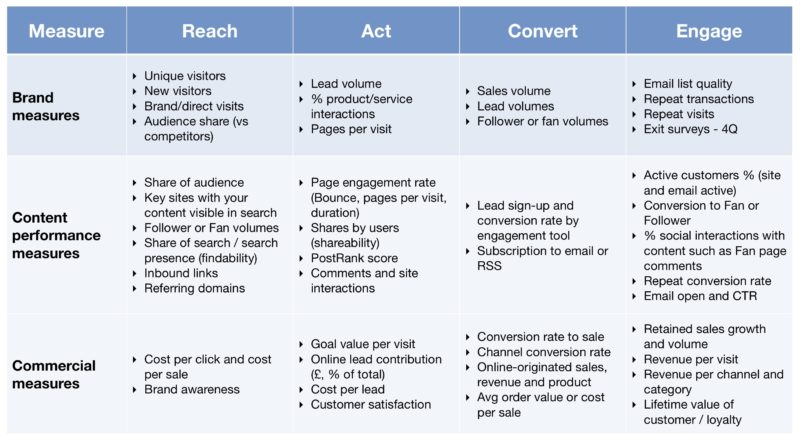
Hiring a marketing agency is a risky endeavor for smaller businesses and growing teams. But is recruiting in-house a cost-effective investment that is worth it?
Hiring a Marketing Team
Startups are in different stages and their marketing potential may vary dramatically. Being “pre-revenue” or generating a negligent monthly recurring revenue may pose problems. Reputable professional marketing agencies often come with established process that require months before seeing any results.
Hiring a marketing team could be done in two different ways:
- Hire a group of marketers who can accomplish your goals and make sure that all marketing activities are directly related to predefined targets
- Hire an agency or a team + a Director of Marketing who will determine and define the strategy for your business in the long run
Most business owners I know don’t have a clear marketing strategy and only concentrate on direct sales. On the other hand, marketers focus on various tasks, including content creation, social media marketing, guest blogging, email marketing, and other inbound activities, as well as pay-per-click, outreach, partnerships, or PR efforts for those in outbound marketing.

Marketing is a broad term that covers various areas. The main goals can include raising brand awareness, boosting conversion rates, increasing traffic, gaining more exposure in well-known outlets (which can aid in securing funding), identifying influencers, creating a community of brand advocates, maximizing free signups, lowering churn rates, or anything else in that range.
Annual Marketing Budgets Per Company
A research study by Gartner Research says that:
“companies spent on average 10.2% of their annual 2014 revenue on overall marketing, with 50% of companies planning to increase [in 2015] to an average of 10.4%”
There are plenty of exceptions to the rule, some outlined in the original article – such as 20% for Oracle, 44% for Twitter and 53% for Salesforce.
That said, 10% is somewhat common in the industry among a large study group comprised of both small, medium-sized, and large businesses.
Freelance Marketing Fees
A study covered by Entrepreneur on marketing contracts and fees reports that “Freelancers’ hourly rates range between $50 and $100”. Agencies would usually ask for higher rates due to their added company overhead and the specifics of running a business (spending on marketing yourself, attending events, paying for office and administrative staff, etc.)
Marketing is all about KPIs and a return on investment. But a successful marketing campaign also requires:
- a lot of planning
- building a custom-tailored strategy
- investing in different actionable areas (content production, distribution, creating email campaigns, outlining copy for landing pages, SEO, social media marketing, partner outreach, you name it).
If the average spend by a company is 10%, you can do the math yourself and project the expected investment for the marketing seat.
If your startup is pre-revenue, that’s definitely a hard sell. If you’re funded, the question would be directed to your investors.
That said, if your startup generates $10,000/month, an average marketing fee will be in the realm of $1,000 a month. Now, what could a marketer do in 15-20 hours a month (given the average freelance rates) and how would that impact the business? How long would it take them to break even and start generating any profit for your company?
Consideration Before Investing in Marketing
When crafting a marketing strategy, there may be some critical bottlenecks. Some businesses require a lot of hard work in order to “keep up” with the marketing expectations given their existing marketing and branding strategy to date. Some examples:
- If your website is simply poorly designed and developed, there is an initial investment that you have to consider (you can’t sell if your website is turning visitors away).
- If you have never worked on educational content for sales purposes, the content strategy would require a complete restart. It will take a while before generating some leads and sign ups for your email list or free product plans.
- If the buyer personas are not defined, a marketer has to step in and conduct a detailed market and competitors research, a definition of the best target verticals and the customer profiles for your business.
- If your product/service guides do not bring the best out of your solutions for the general public, the marketer should get familiarized with the business problems and the key selling propositions that would relate to the problems of your audience.
- If there’s a lot going on in-house, a limited monthly plan may prevent a marketer to get up to speed with all of the news in-depth that are worth sharing and distributing.
We have also seen problems with the stability of clients’ products or the reliability of the services we were assigned to work with. That’s often a conclusion that is identified after the first 2–4 months which could completely restructure the initial marketing strategy. Sometimes it’s a lack of understanding of the target market, otherwise it’s an honest mistake caused by the blind belief of a founder for the viability of their business.
Small startup teams should work together and market together as well. Being a developer or a systems engineer doesn’t mean that you should avoid all distribution activities or helping out with case studies for your website. There are tons of missed opportunities in a team whenever the majority of the staff is not engaged with promotion and ambassador activities at all.
Handling Marketing In-House
An in-house marketer can also assist with other day-to-day duties until the business get traction. That includes attending local conferences and meetups and making strategic partnerships with partners. Working closely with the creative department may generate better results for starters.
Of course, a junior or some of the original non-marketing founders switching to a marketing role will likely have a higher learning curve and miss essential opportunities in the early days. A marketing agency is definitely a viable choice and a progressive alternative. But being in-house in the early days and spending 160 hours a month on marketing activities is certainly something that could be compared objectively with a relative amount spent on a third-party and what they offer in return.
As a conclusion, marketing agencies may have former industry expertise, a portfolio of companies that may help each other, and connections in the space. It’s likely they would apply a refined and well-tested strategy or utilize additional channels for exposure, as well as experts profiling in different fields of marketing. Deciding on whether you should offload work to an agency, hire a marketer in-house or start with DIY marketing in the early days isn’t an easy choice. Take your time and review all opportunities – they may yield different results depending on the stage of the startup, its ongoing revenue, and the long-term goals.